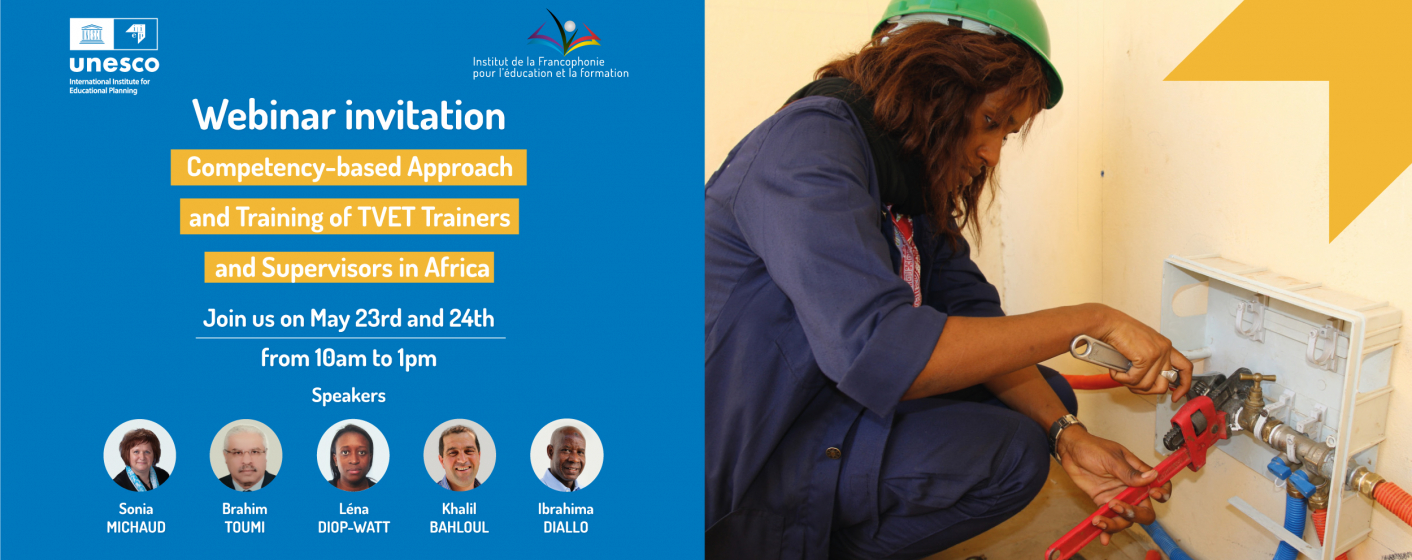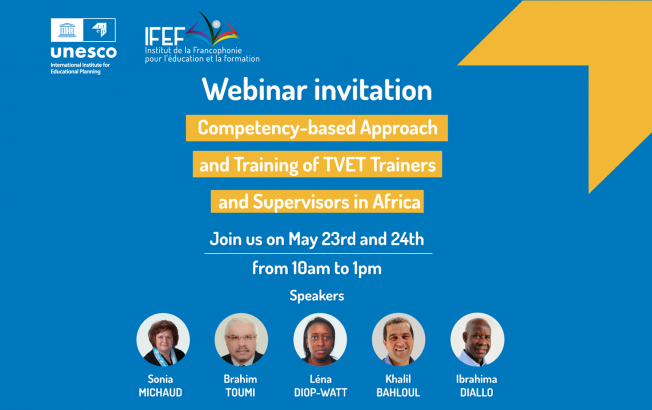CBA and training of trainers in Africa: results of two significant studies
Webinar to share the results of two studies on (i) the contextualization and adaptation of the Competency-Based Approach and (ii) the training and management of trainers in Africa and supervisory staff. These two studies covered the following eight countries: Benin, Ethiopia, Ghana, Madagascar, Morocco, Rwanda, Senegal and South Africa.
Date: 23rd and 24th May 2022 over two mornings (10am -1pm UTC).
As part of its technical cooperation with partner countries and its support for knowledge production, IIEP-UNESCO Dakar has recently carried out two studies: one on the contextualisation and adaptation of the Competency-Based Approach (CBA) and another on technical and vocational education and training.
These two studies covered the following eight countries: Benin, Ethiopia, Ghana, Madagascar, Morocco, Rwanda, Senegal and South Africa.
The study on the competency-based approach was carried out in partnership with the Institut de la Francophonie pour l'Education et la Formation (IFEF) of the Organisation Internationale de la Francophonie (OIF), which mobilised its network of experts in the field of CBA in Technical and Vocational Education and Training (TVET). The aim was to identify good practices to be perpetuated and difficulties encountered in introducing or sustaining the implementation of CBA, and to draw recommendations that can be used in other countries wishing to make CBA more effective in their TVET systems.
The second study on the training and management systems for TVET trainers and supervisors aimed to shed more light on the development challenges of these systems and to provide guidelines, in the form of roadmaps, to upgrade national orientations and choices.
Relationship between the two studies: CBA and training personnel
The human factor remains the essential element of all reforms. Structurally, CBA is a paradigm shift approach in the field of TVET. For its understanding and implementation, in all its stages, it requires well-qualified human resources in training engineering and pedagogical engineering.
Implementing curricula produced according to this approach in schools requires the presence of well prepared trainers and managers. All trainers, whatever their role in implementing a training programme developed according to CBA, must be technically and pedagogically qualified; school managers - directors, heads of works, workshop managers - must also be qualified. Numerous studies on TVET in Africa emphasise the importance of qualified human resources for the feasibility of the reforms needed in vocational training systems.


